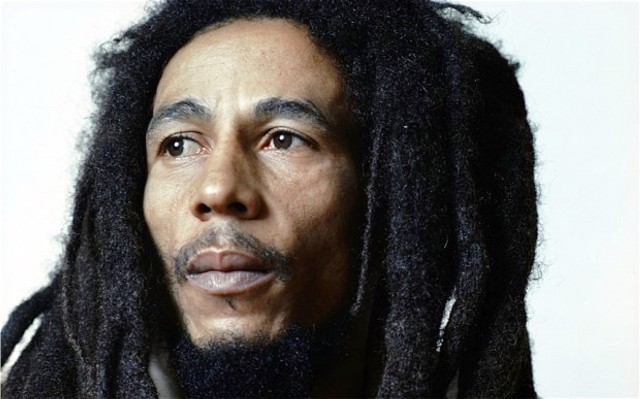Entertainment
I Killed Bob Marley -Ex-CIA Agent

A 79-year-old former agent of America’s Central Intelligence Agency (CIA), Bill Oxley is rewriting the history of the death of Reggae legend, Bob Marley, claiming that he actually killed him.
Marley tragically died on May 11, 1981 at the age of 36, making music lovers world wide to grief as the Jamaican icon’s life and career were cut short following a four-year battle with cancer. The story of cancer may seem untrue as startling revelations have emerged from a death bed confession by an Ex-CIA official where he admitted “I killed Bob Marley.”
Oxley is alleged to have claimed murdering Marley among 17 other assassinations for the American Government between 1974 and 1985 at a time he said the CIA was “law unto itself”.
Oxley, who reportedly worked as a CIA operator for 29 years is alleged to have said he was often used as a hitman on targets deemed to represent threat to the interest of United States.
In a purported interview shared-widely on line, he admitted he had no problem with proceeding with the Bob Marley assassination because, “I was a patriot, I believe in the CIA and I didn’t question the motive of the agency, I’ve always understood that some times, sacrifices have to be made for the greater good according to the conspiracy theory”.
Oxley used fake press credentials to gain access to Bob Marley at his blue mountain retreat, introducing himself as a farmers photographer working for the New York Times and gave Bob Marley a gift, “I gave him a pair of canvas, all stars size 10. When he tried on the right shoe, he screamed out, that was it, his life was over right there and then the nail in the shoe was tainted with cancer viruses and bacteria, if it pierced his skin, which it did, it was goodnight nurse.
“There had been a series of high profile assassinations of counter culture figures in the United States in the late sixties and early seventies. By the time Bob Marley’s time came around, we thought subtlety was the order of the day, no more bullets and splattered brains”.
Mr Oxley said he kept close contact with Marley during the final years of his life, ensuring the medical advice he received in Paris, London and United States would hasten his demise rather than cure him. “The last time I saw Bob before he died, he had removed the dreadlocks and his weight was dropping like stones, he was very withdrawn, unbelievably small, he was shrinking in front of us, the cancer has done its job.
Although widely dismissed as fiction, the account does tally with the findings by UK scientists in 2014 who discovered the mysterious accrual melanomas, the rare type of skin cancer that caused the Reggae musician’s demise was infact not caused by the sun. Bob Marley’s son, Ziggy had previously implied his father was killed, saying in an interview in 2013 about the father’s death, ” I don’t know what to believe, there are a lot of theories”.
In the late 1970s, Jamaica was flooded with cheap guns, heroine, cocaine, right wing propaganda, death squads ruled and as Grenada’s Prime Minister, Maurice Bishop described it three years later, “The CIA’s pernicious attempts (to) wreck the economy” Destabilisation, Bishop told the emergent new Jewel Party” “is the name given the most recently developed method of controlling and exploiting the lives and resources of a country and its people by a bigger and more powerful country through bulling, intimidation and violence.
In response to the fascistic mechanisations of the CIA, Marley wove his lyrics with a revolutionary crucifix to ward off the cloak-and-dagger vampires descending upon the Island. The CIA which has denied any involvement in Marley’s death has been approached for comments.
Entertainment
Funke Akindele’s Behind The Scenes Crosses ?1.77bn

Funke Akindele’s Behind The Scenes becomes Nollywood’s highest-grossing film of 2025, earning ?1.77bn in under four weeks.
Multi-award-winning actress and producer Funke Akindele has done it again, and this time, the numbers speak louder than applause.
Her latest film, Behind The Scenes, has officially emerged as the highest-grossing Nollywood film of 2025, pulling in an astonishing ?1.767 billion in less than four weeks.
The Tide Entertainment reports that Funke Akindele Makes Box Office History as Behind The Scenes Crosses ?1.77bn
Earlier in its release cycle, the film’s distributor, FilmOne Entertainment, revealed that Behind The Scenes smashed five opening-weekend records, including the highest single-day gross ever recorded on Boxing Day, with ?129.5 million in one day. That announcement already hinted that something unusual was unfolding.
Reacting to the milestone, FilmOne described the moment as both surreal and communal, crediting audience loyalty for pushing the film to the top spot once again as the number-one movie of the weekend. And that sentiment feels accurate. This wasn’t just ticket sales; it was momentum.
What makes this achievement even more striking is that Behind The Scenes is Funke Akindele’s third film to cross the ?1 billion mark. Before now, there was A Tribe Called Judah, and then Everybody Loves Jenifa, a film that didn’t just open big, but went on to become the highest-grossing Nollywood film of all time. At this point, it’s no longer a fluke. It’s a pattern.
Part of Behind The Scenes’ success lies in strategy. The film enjoyed advanced screenings on December 10 and 11, quietly building curiosity and conversation before its nationwide release on December 12. By the time it officially hit cinemas, audiences already felt like they needed to see it.
Then there’s the cast. The film brings together a lineup that feels deliberately stacked: Scarlet Gomez, Iyabo Ojo, Destiny Etiko, Tobi Bakre, Uche Montana, and several others. Familiar faces, strong fan bases, and performances that kept word-of-mouth alive long after opening weekend.
Still, beyond timing and casting, there’s something else at work here. Funke Akindele understands Nigerian audiences. Their humour, their pacing, their emotional buttons. She doesn’t guess, she calculates, experiments, listens, and refines. That understanding has slowly turned into box-office dominance.
Behind The Scenes crossing ?1.77 billion isn’t just another headline; it’s confirmation. Funke Akindele has moved from being a successful actress to becoming one of the most reliable commercial forces Nollywood has ever produced. Three-billion-naira films don’t happen by luck. They happen when storytelling, business sense, and audience trust align.
And right now, that alignment seems firmly in her hands.
Entertainment
Adekunle Gold, Simi Welcome Twin Babies

Popular Nigerian music stars, Adekunle Kosoko, widely known as Adekunle Gold, and his wife, Simi, have become parents again this time to twins.
The award-winning singer shared the joyful update on his Snapchat story on Wednesday, confirming the expansion of their family.
“Asked God for another child and he blessed me double,” she wrote.
While the couple has not yet disclosed the gender of the newborns, the announcement has sparked an outpouring of warm wishes from admirers, fellow celebrities, and industry colleagues.
Speculation had intensified in December when Simi posted a video on Instagram accompanied by the caption, “From my baby, for my babies.”
The clip showed her with a growing baby bump, fueling anticipation that another child was on the way.
Their latest blessings arrive just weeks after Simi highlighted a scene from Adekunle Gold’s newly released music video, “My Love is the Same,” further stirring excitement among fans.
The Tide Entertainment reports that Adekunle Gold and Simi who tied the knot in 2019 after a long history of friendship and musical synergy remain one of Nigeria’s most admired entertainment power couples. Both artistes were once signed to X3M Music before soaring into mainstream acclaim.
The pair welcomed their first child, Adejare Kosoko, fondly called Deja, in May 2020.
Entertainment
Jesse Flames Opens 2026 With ‘Praise The Lord’ Featuring Magnito
After closing out 2025 with the release of “Praise the Lord” featuring Magnito, Jesse Flames enters the new year with renewed clarity and purpose, continuing to build a body of work rooted in intention rather than noise. In a moment where Afrobeats is moving faster and louder than ever, his approach remains measured and deliberate, prioritizing meaning, craft, and longevity over momentary attention. The official music video arrives January 10.
Following the momentum of his breakout single “FLEX,” “Praise the Lord” represents a shift from celebration to grounding. Reflective and soulful, the record centers gratitude, growth, and perspective, capturing a quieter confidence that resonates beyond a single moment.
“This song is about recognizing the full picture,” Jesse shares. “The work people see and the work they don’t. The lessons, the setbacks, the growth.”
The collaboration with Magnito, a respected voice in Nigerian hip hop known for his sharp lyricism and cultural authenticity, adds depth and weight to the record, reinforcing its themes of resilience, faith, and self reflection.
Released in December at the height of Detty December, “Praise the Lord” became a natural soundtrack for both celebration and reflection as the year came to a close. With the video arriving in January, the record takes on new meaning, opening the year as a tone setter rather than a reset.
Born in the United States, raised in Festac, Lagos, and now based in London, Jesse Flames brings a global perspective to his sound, blending Afrobeats, hip hop, and melodic soul into something sleek and intentional. His music reflects lived experience and cultural nuance rather than trend chasing.
The Tide Entertainment reports that with over 11 million streams, performances at O2 Brixton Academy and OVO Arena Wembley, and coverage from The Guardian and Business Post Nigeria, Jesse’s rise has been steady and self made. Looking ahead to 2026 and 2027, he is preparing for collaborations with Ice Prince, M.I Abaga, and Smurlee.
“Praise the Lord” ft. Magnito is available now on all streaming platforms.
-

 Politics5 days ago
Politics5 days agoEFCC Alleges Blackmail Plot By Opposition Politicians
-
Business5 days ago
AFAN Unveils Plans To Boost Food Production In 2026
-

 Sports5 days ago
Sports5 days agoJ And T Dynasty Set To Move Players To Europe
-

 Entertainment5 days ago
Entertainment5 days agoFunke Akindele’s Behind The Scenes Crosses ?1.77bn
-

 News2 days ago
News2 days ago2026 Budget: FG Allocates N12.78bn For Census, NPC Vehicles
-

 Featured5 days ago
Featured5 days agoRSG Kicks Off Armed Forces Remembrance Day ‘Morrow …Restates Commitment Towards Veterans’ Welfare
-

 Niger Delta5 days ago
Niger Delta5 days agoNavy Pledges Improved Patrols, Welfare Boost For Personnel
-

 Featured5 days ago
Featured5 days agoTinubu Hails NGX N100trn Milestones, Urges Nigerians To Invest Locally

